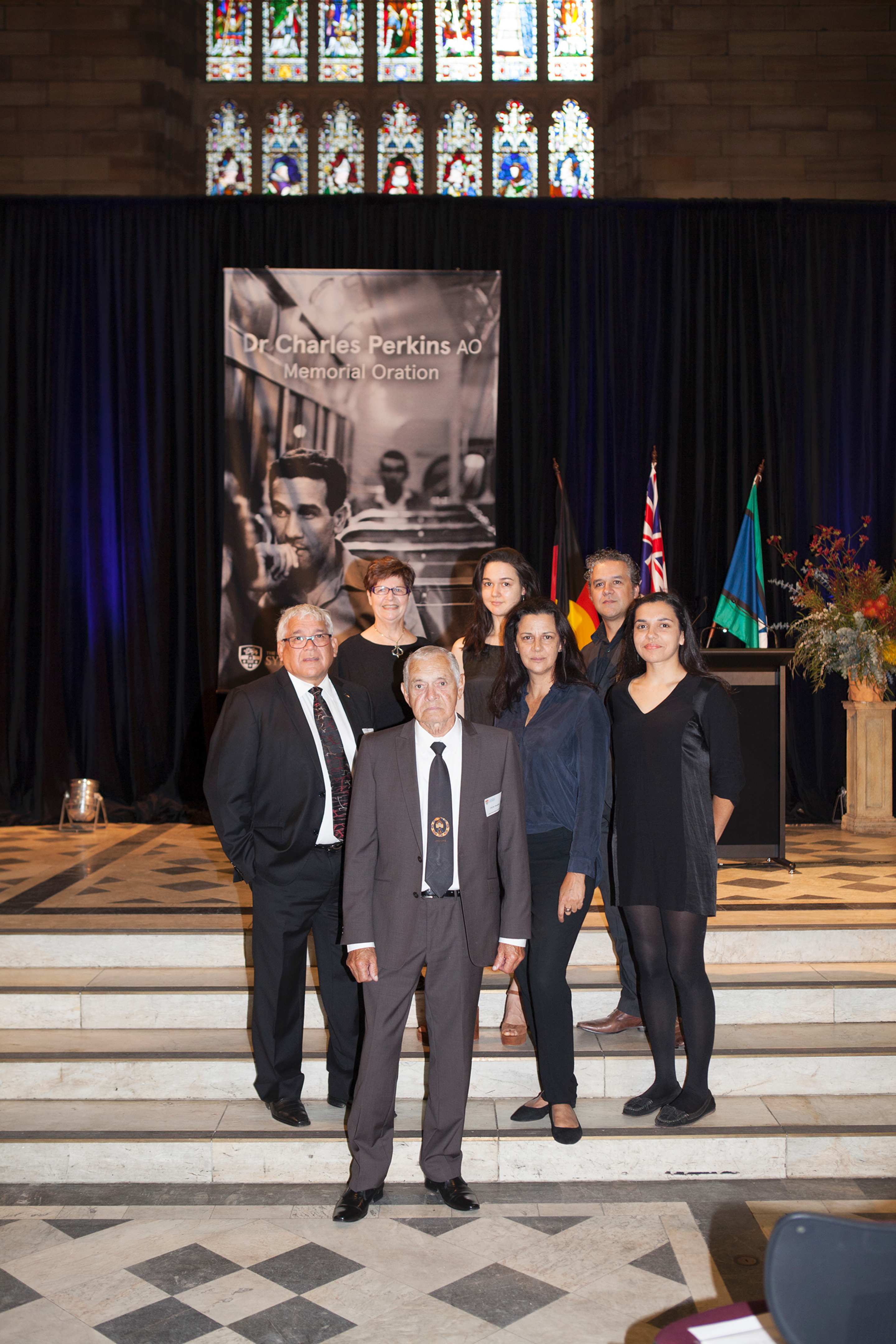Reflecting on the extraordinary life of my friend Charlie Perkins
Aboriginal and Torres Strait Islander Social Justice Commissioner Mick Gooda delivered the annual Dr Charles Perkins AO Memorial Oration at the University of Sydney this week.

In a talk titled 'Whose voices shape reform: politicians or other people?',Commissioner Gooda reflected on the extraordinary influence Dr Perkins has had on peoples' lives.
"Charlie's life has been an extraordinary example to many of us, including myself, that while it may appear that politicians hold much of the power, we can all play a part to influence how that power is exercised," Commissioner Gooda said.
"Charlie was often on the front line, giving voice to Aboriginal and Torres Strait Islander peoples’ rights, and actively pursuing practical outcomes that give effect to those rights.
"From the Freedom Rides, where he went toe-to-toe with pro-segregation residents on the streets of rural towns, to the frontline of government working with politicians and bureaucrats, he advocated for the rights we still strive for today - equality, non-discrimination, self-determination, effective participation, freedom of movement and freedom from harassment in public spaces."
Commissioner Gooda spoke of Perkins' mother - an Arrente woman, whom Perkins' described as 'a very strong willed and highly principled person', and his father, a Kalkadoon man, whose people had endured significant historical battles with European settlers.
"Charlie summed up this heritage from his parents beautifully when he said: ‘Arrente people are peaceful, introspective, deep into the culture, and the Kalkadoon people are very strong and war like and really never take a backward step on things'.
"I think this gives us a great insight into the passion and determination that Charlie brought to his life and the fight for the place our people should occupy in a modern Australia," Commissioner Gooda said.
Commissioner Gooda also described Perkins' "particularly harsh childhood" in Alice Springs where it was illegal for Aboriginal people to live in town.
"Charlie and his siblings were moved to the 'Bungalow' also known as The Old Telegraph Station about a mile north of Alice Springs," he explained.
"Charlie grew up in a compound closely monitored and surveilled by police and government authorities. Men, women and children were separated, generations were isolated from each other and Aboriginal people needed permission to go to town on certain days for limited number of particular purposes.
"I remember Charlie telling of how distressed mothers would go to a certain part of the fence around the Bungalow to see their kids and to pass through everyday treats such as a packet of biscuits – just to let them know they were loved and remained in the forefront of their mothers' mind."
He also spoke about Perkins' many legacies and paid tribute to a man who "inspired countless Aboriginal and Torres Strait Islander women and men across Australia".
"An Arrente/Kalkadoon man, a man to whom many of us counted as a friend and mentor, a man who challenged the status quo of expected behaviour of our Aboriginal women and Aboriginal men of being seen and not heard."
Commissioner Gooda is a descendent of the Gangulu people of central Queensland. He commenced his term as Social Justice Commissioner in February 2010.
Drawing on over 30 years' experience working in Aboriginal and Torres Strait Islander affairs Australia-wide, Mr Gooda advocates for the human rights of Indigenous Australians, promoting respect and understanding of these rights to the broader Australian community.
The Dr Charles Perkins AO Memorial Oration was first launched in 2001 in honour of Dr Charles Perkins AO, the University of Sydney’s first Indigenous graduate.
Continuing Dr Perkins' legacy of a dedication to human rights and social justice, the annual oration features a leading spokesperson in the field of Indigenous and non-Indigenous race relations. Previous keynote speakers have included Noel Pearson, Marcia Langton, Tom Calma and Marion Scrymgour.
Find out more about the Charles Perkins Centre.
Related articles
Humanities scholars elected into Australian academy
Three University of Sydney academics have been elected into Australia’s most prestigious humanities academy.

Maternity care for Aboriginal women
A new maternity services plan for Aboriginal and Torres Strait Islander women in rural and remote communities is urgently required, a report has found.
Between the South China Sea and human rights
Prime Minister Turnbull's decision to criticise China on the South China Sea issue, but avoid touching on the human rights issue, can be seen to be in the best interests of Australia, writes Klaus Raditio.
Sydney excels in national research engagement and impact assessment
Chinese investment in Australia falls by 36.3 percent in 2018
Strategic plan essential for increased Aboriginal participation
A landmark scheme to lift enrolment and completion rates of Aboriginal and Torres Strait Islander students has been hailed as crucial to achieve real progress in the sector.
How should Australia respond to a major cyberattack?
Student teams tackle cyberattack scenarios and security policy at the Cyber 9/12 Student Challenge - the first event of its kind in the region.
Explainer: what makes a good teacher
From judging what's best for the class and individual to finding the 'sweet spot' for learning, Dr Nicole Mockler explains teaching traits and skills.